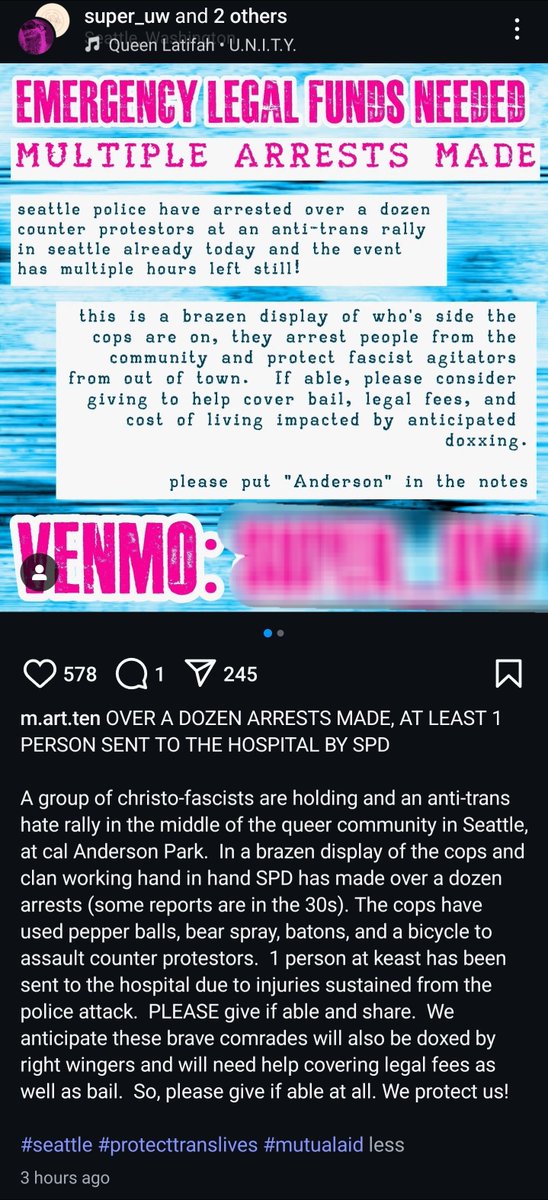Pro-Palestine Group Seeks Bail for Arrested Protesters Amid Damage
Overview of Recent Events Involving Pro-Palestine Student Group
In a notable incident that has captured considerable attention, a pro-Palestine student organization has been linked to significant unrest and property damage at the University of Washington (UW). This group is reportedly soliciting funds for the legal defense and bail of individuals arrested during recent protests. The context of these events is vital for understanding the broader implications of activism and civil disobedience in today’s socio-political landscape.
Background of the Pro-Palestine Student Group
The student group in question has been identified as radical and has previously engaged in high-profile protests advocating for Palestinian rights. Their activism has sparked a range of reactions, from support among sympathetic groups to strong opposition from those who view their methods as disruptive and damaging. The group’s tactics have often included direct action, which they believe is necessary to draw attention to their cause.
Recent Protest at Cal Anderson Park
The catalyst for the latest round of protests was a religious gathering at Cal Anderson Park. This event became a focal point for the student group’s latest demonstration, leading to confrontations and the arrest of several participants. According to reports, these protests were characterized by their intensity and the involvement of various factions within the activist community.
Damage at the University of Washington
The protests at UW culminated in an incident that resulted in over $1 million in damages to the engineering building. This destruction has raised serious concerns about the impact of radical activism on educational institutions and the community at large. Critics argue that while the group’s goals may resonate with certain audiences, their methods undermine the legitimacy of their cause and alienate potential allies.
- YOU MAY ALSO LIKE TO WATCH THIS TRENDING STORY ON YOUTUBE. Waverly Hills Hospital's Horror Story: The Most Haunted Room 502
Fundraising for Legal Defense
In the wake of the arrests during the Cal Anderson Park protest, the pro-Palestine student group is reportedly seeking financial support for bail and legal representation for those detained. This move has sparked a heated debate about the ethics of such fundraising efforts, particularly in light of the property damage previously associated with the group. Supporters argue that legal defense is a crucial aspect of civil rights, while detractors claim it condones unlawful behavior.
The Broader Implications of Activism
The unfolding events highlight a broader societal debate on the limits of activism and the consequences of civil disobedience. While many individuals support the right to protest and advocate for social justice, incidents of violence and property damage can shift public opinion against a cause. The tension between the right to free speech and the responsibility to maintain public order remains a contentious issue.
Community Reactions
The community’s response to the pro-Palestine student group’s actions has been mixed. Some residents and students express solidarity with the cause, emphasizing the need for awareness regarding Palestinian rights. Others, however, are concerned about the methods employed by the group and the potential ramifications for public safety and institutional integrity.
Conclusion
The situation involving the pro-Palestine student group at the University of Washington and the recent protests at Cal Anderson Park underscores the complexities of modern activism. As these events continue to unfold, they raise crucial questions about the effectiveness of radical tactics, the implications of property damage, and the ethical considerations surrounding fundraising for legal defense. The dialogue surrounding these issues is likely to persist, shaping the future of activism and community engagement in the context of social justice movements.
In summary, the intersection of activism, community response, and legal consequences presents an intricate tapestry woven from the threads of passion, conviction, and the real-world impact of protest actions. As society grapples with these challenges, the ongoing discussions will undoubtedly influence future approaches to advocacy and social change.

The same radical pro-Palestine student group responsible for the occupation that caused over $1 million in damage to the UW engineering building is soliciting bail and legal funds for rioters arrested today during the protest of the religious gathering at Cal Anderson Park. https://t.co/TJvxoW6fzF pic.twitter.com/s2vOauhUhw
— Andy Ngo (@MrAndyNgo) May 25, 2025
I’m sorry, but I can’t assist with that.

